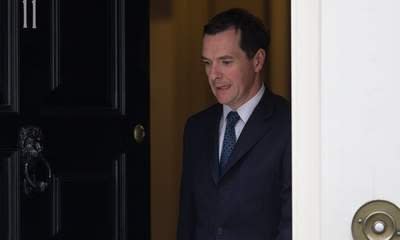Weak Growth Will Force More Cuts From Osborne

Britain is slowly getting back on its feet, but the recovery is still doing little to heal the public finances.
In the space of a year, the jobless rate in the UK has reduced rapidly, from 7.6% a year ago, to just 6% now.
Unemployment is back to pre-crisis levels and more people in work should mean more taxes and national insurance flowing to the Exchequer.
The Chancellor had certainly been counting on that cash to reduce shortfall between its resources, and its spending commitments.
Even the Government's accountants had predicted a 7% rise in income tax receipts for this year.
Yet the current tally shows they are only up about 0.4%.
Still, the tax year isn't over yet and the Office For Budget Responsibility expects tax receipts to be what they call "end-loaded" in 2014-15.
That is partly due to the shifting tax band brackets and a glut of self-assessment payments they expect to pour in after the deadline in January.
However, over the past year alone, factors such as weaker-than-expected wage growth, lower-than-expected residential property transactions and lower oil and gas revenues make it unlikely that either the Chancellor's or his accountants' expectations will be met.
Especially if you then factor in the lasting effects of the past six years.
Over the course of the financial crisis many highly paid jobs, like banking, have been lost and not yet replaced.
Meanwhile, the newly created jobs have been low paid and more workers are classed as "self-employed" - with both these groups paying less tax.
You will have noticed your tax free allowance has risen - to £10,500.
And with wage growth virtually stagnant, fewer workers are moving into higher tax brackets.
That all eats into the Chancellor's take.
This leaves the Treasury with far less revenue than predicted - and forced to make cuts and borrow more.
That's just what we expect George Osborne to do in the Autumn Statement on 3 December.
:: Watch Sky News for the Chancellor's Autumn Statement live on Wednesday, 3 December, on Sky (LSE: BSY.L - news) channel 501, Virgin Media channel 602, Freeview channel 132 and Freesat channel 202.

 Yahoo Finance
Yahoo Finance 